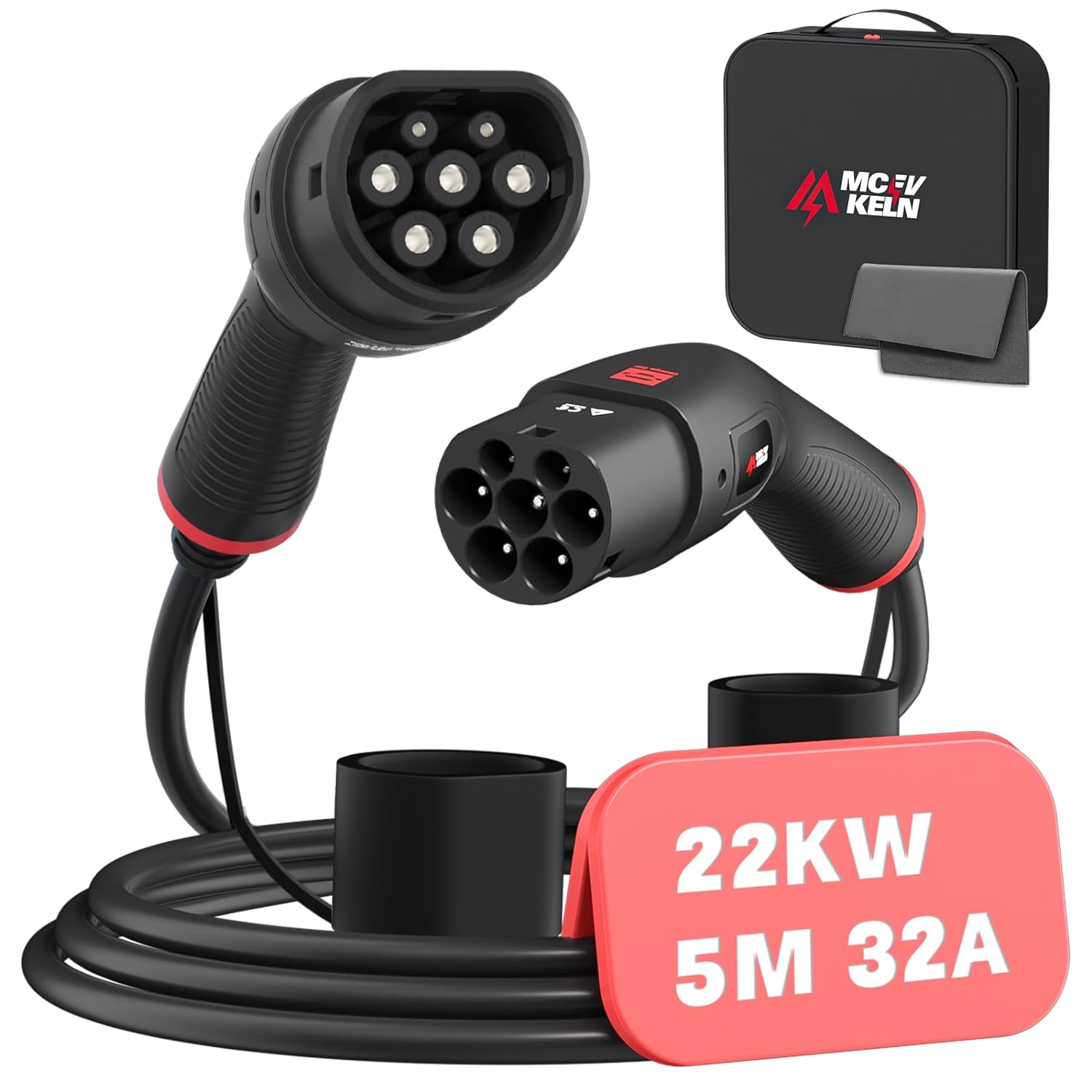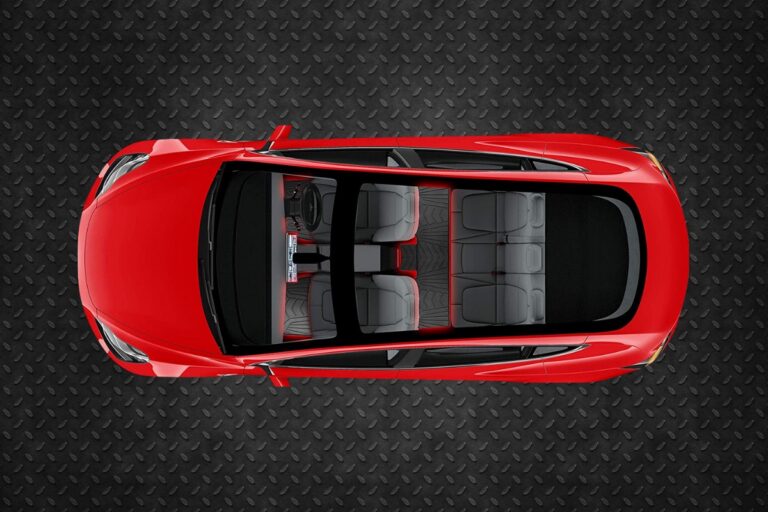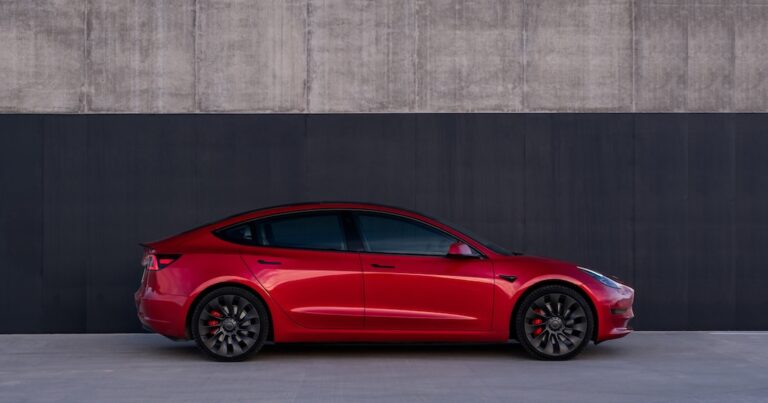Best Type-2 EV Charging Cables in Australia & Buying Guide
There are a few different EV charge cables available in Australia; thankfully, every new electric car sold in Australia now shares the same Type-2 connector, making it much easier when shopping for suitable charging cables.
Not all charging cables are created equal, and there are a few things to consider when purchasing a suitable cable for your EV. Cable length and charge speed are the two main variables. However, design and quality also play a role here.
In this article, we have rounded up a few popular charging cables and compared them in terms of features, quality, and price.
We also discuss some of the things you need to know and look out for when purchasing your charging cable, such as when you may need to use it, what length you will need, and what charging speed the cable should be capable of.
EV Mojo is reader-supported. When you buy through links on our site, we may earn an affiliate commission. Learn More
5 of the best Type-2 EV charging cables in Australia
Type-2 Charging cable reviews
X-Car 22kw 5m Type 2 EV Charge Cable
Our Pick
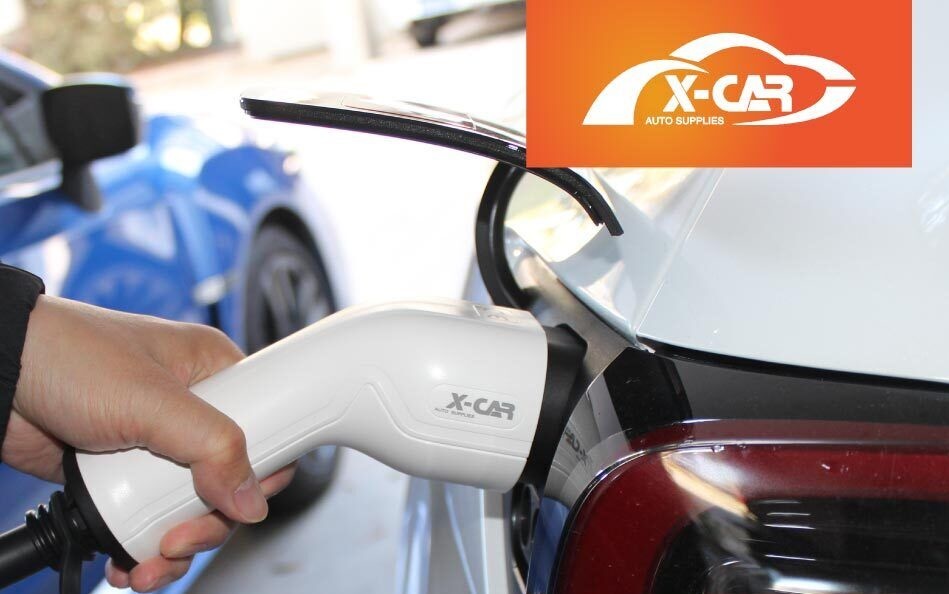
- Great value for money
- 2-Year warranty
- Made from lower-cost materials.
When it comes to charging cables, X-Car may not be a household name, but their products have proven to be great value for money. Their 5-metre 3-Phase 22kW cable is one of the most popular on the market, and for good reason: it is lightweight, well built and has a 2-year warranty to boot.
This cable is capable of speeds of up to 22Kw or 32A, which is the maximum for AC charging. The 5-metre length is long enough to charge most EVs whether parking nose in or reversing up to the public charger.
Overall, for the price, this cable is hard to beat; although it won’t win any design awards, it will certainly meet your public charging needs for your EV.
LAPP Orange 22kw EV Charge Cable
Upgrade Pick
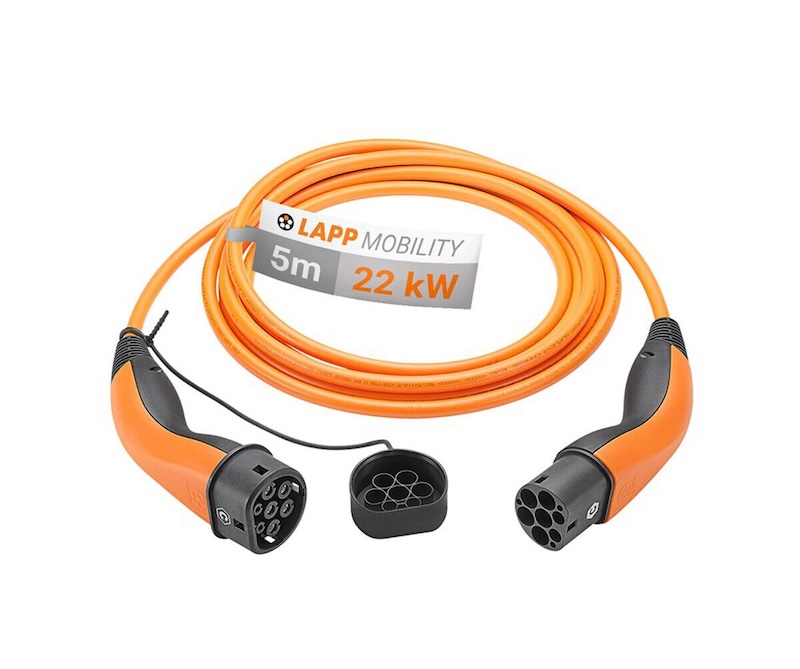
- Made in Germany
- 3-Year warranty
- Eye-catching design
- Lightweight
- Higher priced than others.
The LAPP Type 2 charging cable is like the superhero of EV charging – made in Germany, backed by a solid 3-year warranty, and meeting all those fancy IEC and EN standards. It’s your go-to buddy for hassle-free charging when on the road.
This is a well-built and great-looking cable; the orange cable will make it more obvious, particularly in low-lit car parks, reducing the chances of anyone tripping over it.
What makes this cable particularly unique is that despite it being a full power cable at 22kw, it is relatively lightweight, weighing in at just 1.8kg.
MCEVKELN 22 kW Type 2 EV Charging Cable
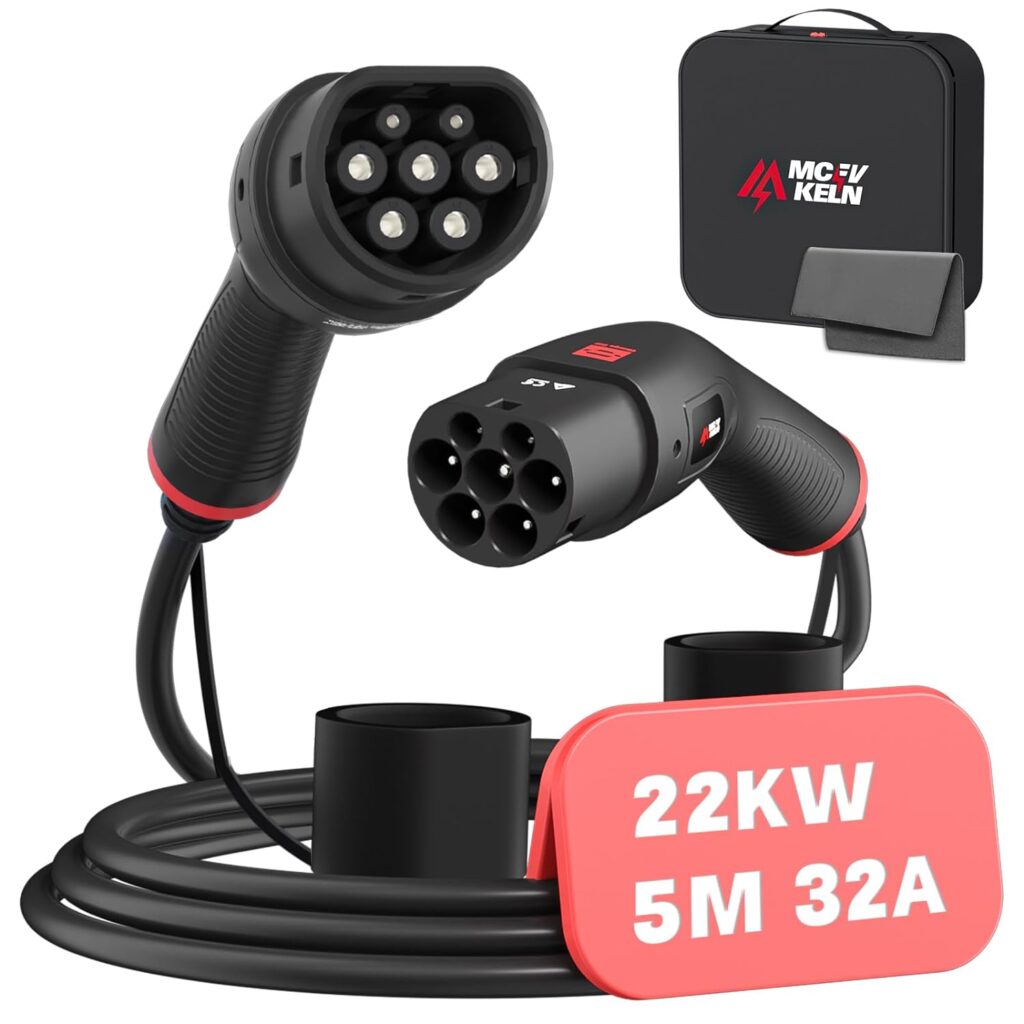
- 1-Year warranty
- Quality design
- It comes with a carry case
- A bit pricey.
This is another great EV cable on the market. With an average Amazon rating of 4.5, many have reported that the cable is very reliable and built well.
The red striping provides a design that subtly differs from many other cables on the market.
This full power cable that provides up to 22kw of power, maxing out both single and 3-phase chargers.
X-Car 7Kw Type 2 charge cable
Budget Pick
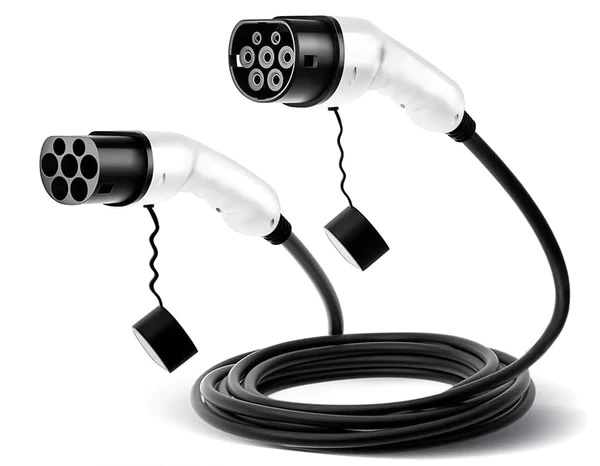
- Lowest cost option
- Lightweight design
- Cheaper build quality.
- Limited to single phase 32amp
This is the 7Kw version of the X-Car cable above; if your vehicle does not support 3-phase charging, this cable may be a better option as it is lighter and easier to store.
If you need a cable for emergency purposes only and want something that is low-cost and lightweight, this is the cable to get. At 7kW most cars can expect to add around 40 km of range every hour.
Gruensauber 7m 22kw Type-2 cable
Notable Mention

- Snazzy blue cable design
- 7m in length
- 2-Year warranty
- It’s one of the newer bands on the market.
Rated at 22kW, this Type-2 charging cable from Gruensauber will allow you to charge your EV at a public charger’s maximum AC speed.
What makes this cable great is that It is 7 metres long, providing extra flexibility for charging scenarios; for instance, if a charging space is blocked, you may still be able to plug in whilst parked in an adjacent spot.
Comparison Table
| X-Car 22Kw 5m | LAPP 22kw 5M | MCEVKELN 22kW 5M | X-Car 7Kw 5M | Gruensauber 22Kw 7m | |
|---|---|---|---|---|---|
| Max power | 22kW | 22kW | 22kW | 7kW | 22kW |
| Length | 5 Metres | 5 Metres | 5 Metres | 5 Metres | 7 Metres |
| Cable Colour | Black | Orange | Black | Black | Blue |
| Warranty | 2-Year | 3-Year | 1-Year | 2-Year | 2-Year |
| Price | $ | $$$ | $$ | $ | $$$ |
| Check Price | Check Price | Check Price | Check Price | Check Price |
Round-up conclusion
If you want the best all-round cable at a reasonable price, we recommend the 5-metre 22kW cable from X-Car. With a 2-year warranty and 22kW charging speed, it is one of the most popular cables on the market.
If you are looking for the best cable that will last the test of time, it is hard to go past the German-made LAPP 22Kw 5m cable.
If you want a longer cable for convenience reasons, the 7m 22Kw cable from Gruensauber is hard to beat, and as a bonus, it also comes with its own carry case.
EV Charging Cable Buying Guide
We have put together this EV charging cable buying guide to help untangle some of the confusion around charging your EV at a public charger and provide some points to consider when selecting and purchasing an EV charging cable that is suitable for your needs.
When do you need an EV charging cable?
Public chargers can be divided into two categories: AC and DC chargers. DC chargers are Level-3 fast chargers and always come with cables attached to them. These can charge up to 250kW and above and, therefore, have all the equipment required to blast at such high speeds.
AC chargers can charge at a maximum of 22kW utilising a 3-Pase power feed. These are generally referred to as destination or Level-2 chargers. They are much smaller than DC chargers and a lot more common. Many councils are installing these on the street, and businesses are installing them to attract EV owners to their establishments.
Many AC destination chargers are not equipped with a cable; they will have the charge socket and require the EV driver to supply their cable. The reason for this is twofold: it is cheaper to deploy and requires much less maintenance, as the main wear and tear item is usually the cable.
For this reason, it is recommended that if you own an EV, it is a good idea to have a charging cable in your vehicle at all times, in case you would like to utilise one of these public chargers that are not equipped with its own cable.
What is the best length for an EV charging cable?
In most cases, a cable length of 5 metres is more than sufficient. We do not recommend a cable length shorter than this, as it may limit your charging options based on charger positioning and vehicle size.
In some circumstances, owning a 7-metre cable can be beneficial. One such case may be if an EV charging spot was taken by a non-electric vehicle, you can park next to it and still utilise the charger using the longer 7-metre cable.
Are longer EV charging cables better?
Longer EV charging cables are heavier as they need to utilise thicker copper cores as well as being longer which increases their weight.
Another downside to longer cables is that they are more annoying when packing up your cable as they are longer and heavier.
EV charging connector types.
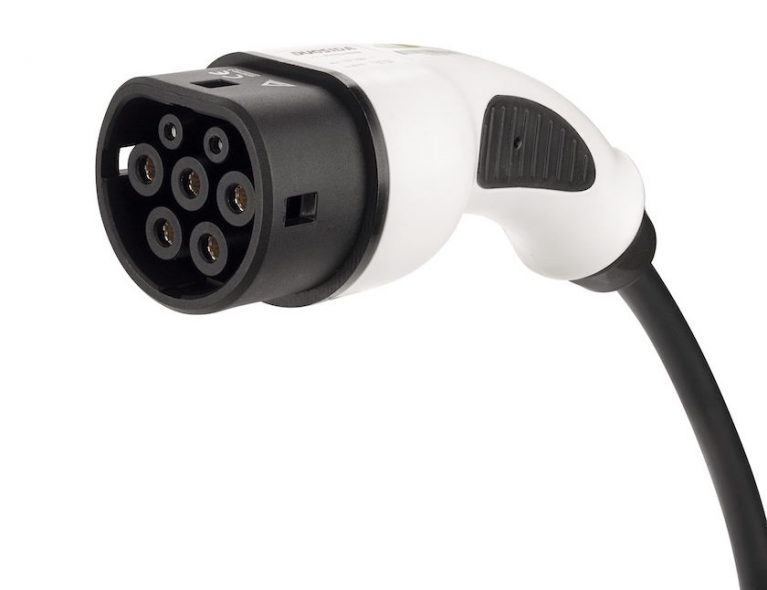
In Australia, New EVs are now standardised with the Type-2 Mennekes connector. This makes it much easier when shopping for an EV charging cable as all type-2 cables will work with all new EVs in Australia.
Whether you have a Tesla Model 3, Model X or Model S, Porsche Tycan or BYD Atto 3, all new VEs in Australia share the same type-2 connector.
EV charging cable 7kW vs 22kW
There are two main speeds (or power levels) of charging cables for electric vehicles, these are single-phase or 3-phase.
Single-phase cables will charge at around 7kW whilst 3-phase will be capable of speeds up to 22kW.
Even if a public charger is capable of 22kW output and you have a 22kW compatible cable, the maximum speed you can charge will be determined by your vehicle. For example, a Tesla Model 3, along with many other EVs on the market, has a maximum AC charge limit of 11kW. In saying that, opting for a 3-phase charging cable will still net you a charge speed increase of over 50% from a regular 7kW cable.
It is generally recommended to purchase a 22kW cable as many public chargers are now wired for 3-phase, and the cost difference between a 7kW and 22kW cable is minimal.
Cable colour, does it matter?
Some EV charging cables are available in bright colours; although they may look cool, that bright colour has a purpose. In a public charging environment, there is always the risk of someone tripping over a cable; having a brightly coloured cable will make it much easier to see and reduce accidents.
Locking the cable whilst charging
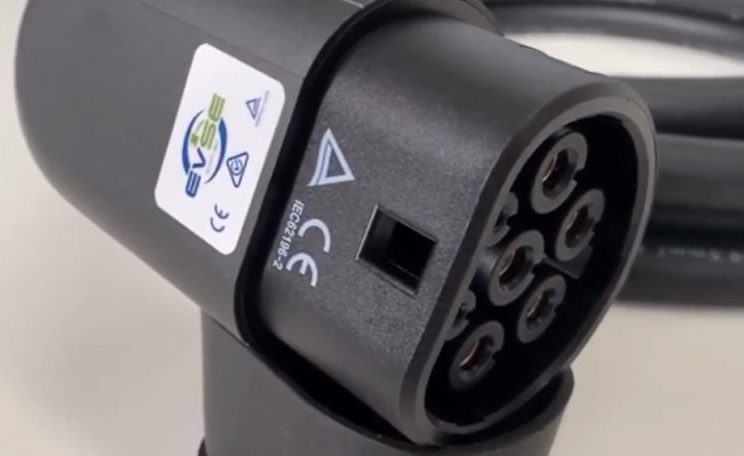
Many of the modern charging cables sold today have little slots on the connector, this is so the charger and vehicle can lock the cable in place and prevent someone from unplugging your car whilst charging or, worse, stealing your cable.
When purchasing your cable, make sure it has the slots to allow the automatic locking feature.
Keeping your EV charging cable organised
As EV charging cables are large and heavy, it is a good idea to wind them up and pack them into a cable carry case. We recommend a case like this one
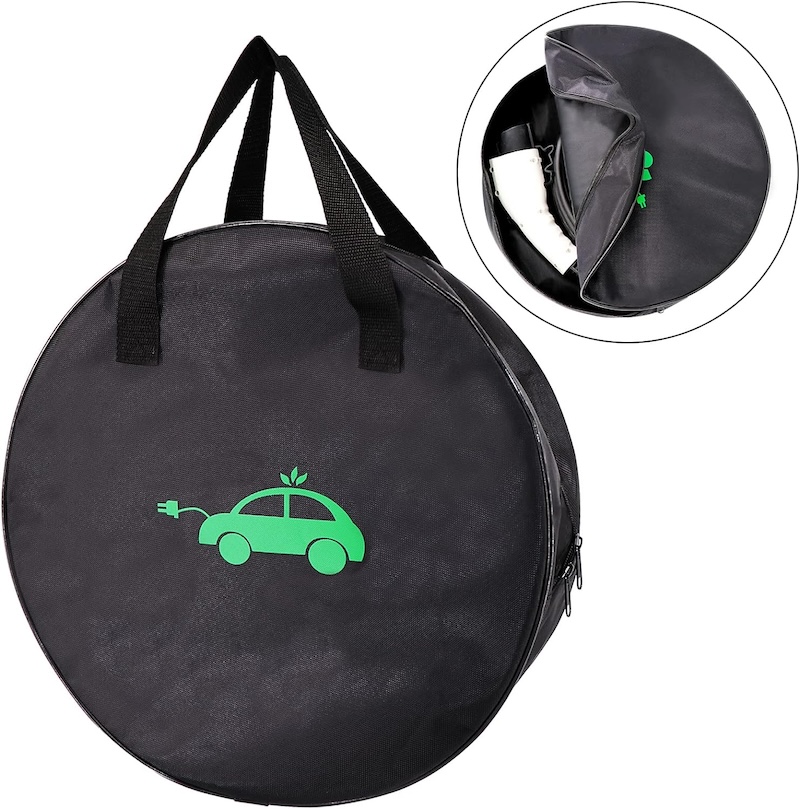
Conclusion
The main variables for a Type-2 charging cable are speed and length. Purchasing a cable with the maximum possible 22kW AC charging speed will ensure that you can always charge as fast as possible, no matter the charger or vehicle.
Purchasing a cable at least 5 metres will ensure flexibility when you approach a public charger. If you have a larger EV or want to charge when not directly in front of a public EV charger, then a 7-metre cable is your choice.
FAQs
Do you need an EV charging cable?
If you plan to utilise the network of public (free and paid) destination chargers, you will need to bring your own cable as many of them are “BYO cable”.
What length does an EV charging cable need to be?
It is recommended to get a cable that is at least 5 metres in length to ensure flexibility when approaching a public charger.
What is the difference between a 7.2kW and 22kW EV charging cable?
A 7.2kW charging cable is single-phase compatible whilst a 22kW charging cable is both single and 3-phase compatible. A 22kW charging cable will charge your EV faster if both the charger and EV allow for faster charging.
How much does an EV charging cable cost in Australia?
Cables range from around $180 to $450 on average, depending on speed and length.
Where is the best place to store an EV charging cable
The best place to store your EV charging cable is in the vehicle itself. Many people leave them in the boot or the frunk.

